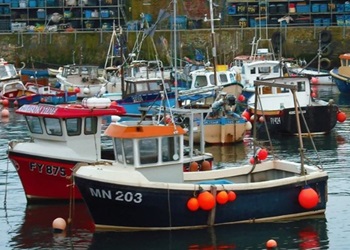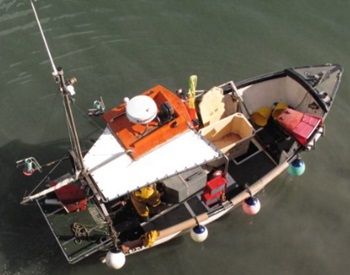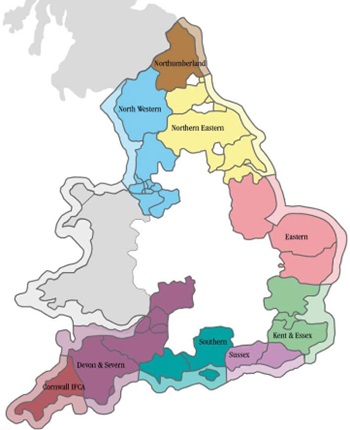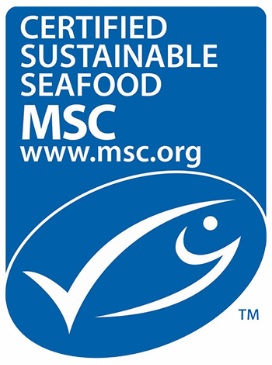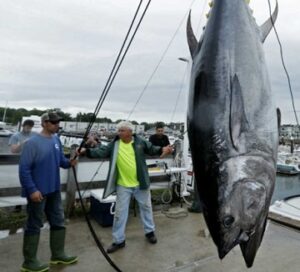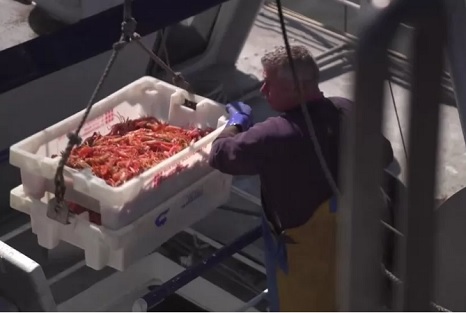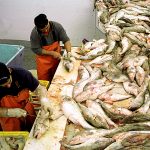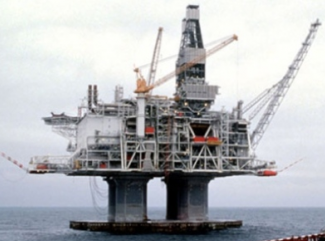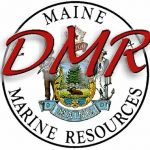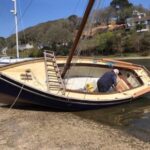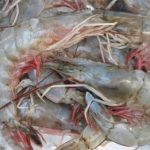Tag Archives: Defra
UK Government Launches Remote Electronic Monitoring on Fishing Vessels
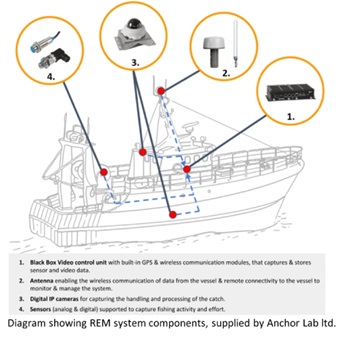 The UK Government has begun rolling out Remote Electronic Monitoring (REM) systems on fishing vessels, marking a significant step towards modernising the monitoring of fishing activities and promoting sustainability. The Department for Environment, Food and Rural Affairs (Defra), in collaboration with key partners, is implementing this technology to collect real-time data on fishing activities and catches, supporting both the industry and environmental conservation efforts. The REM system, comprising sensors and cameras, will provide data on the location and timing of fishing operations and what species are being caught. Defra’s Fisheries Act (2020) and the Joint Fisheries Statement form the legal basis for this initiative, aimed at ensuring a sustainable future for UK fisheries. more, >>CLICK TO READ<< 11:47
The UK Government has begun rolling out Remote Electronic Monitoring (REM) systems on fishing vessels, marking a significant step towards modernising the monitoring of fishing activities and promoting sustainability. The Department for Environment, Food and Rural Affairs (Defra), in collaboration with key partners, is implementing this technology to collect real-time data on fishing activities and catches, supporting both the industry and environmental conservation efforts. The REM system, comprising sensors and cameras, will provide data on the location and timing of fishing operations and what species are being caught. Defra’s Fisheries Act (2020) and the Joint Fisheries Statement form the legal basis for this initiative, aimed at ensuring a sustainable future for UK fisheries. more, >>CLICK TO READ<< 11:47
Hartlepool fishermen reveal how they are still feeling impact of mass crustacean die-offs with fears for entire future
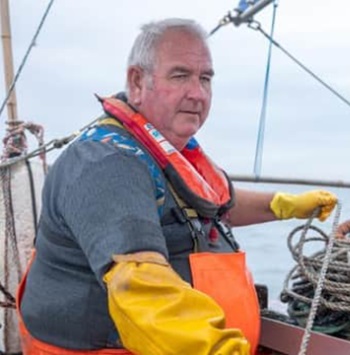 Hartlepool fishermen have spoken of their heartbreak as they say hundreds of years of heritage face being wiped out. Inshore fishers say stocks of crab, lobster and other marine life have not recovered since the sudden and huge crustacean die-offs witnessed from Seaham to Whitby in 2021. Several recent smaller die-offs have been reported in Hartlepool Bay and Teesmouth including a large number of razor clams and cockles on the beach at Seaton Carew. Dead and twitching crabs, similar to those seen in 2021, have also been picked up at sea. Fishermen, together with scientists and supporters, are continuing to fight for answers and are investigating to establish the cause of the ‘ecocide’ that has destroyed livelihoods. more, >>CLICK TO READ<< 09″25
Hartlepool fishermen have spoken of their heartbreak as they say hundreds of years of heritage face being wiped out. Inshore fishers say stocks of crab, lobster and other marine life have not recovered since the sudden and huge crustacean die-offs witnessed from Seaham to Whitby in 2021. Several recent smaller die-offs have been reported in Hartlepool Bay and Teesmouth including a large number of razor clams and cockles on the beach at Seaton Carew. Dead and twitching crabs, similar to those seen in 2021, have also been picked up at sea. Fishermen, together with scientists and supporters, are continuing to fight for answers and are investigating to establish the cause of the ‘ecocide’ that has destroyed livelihoods. more, >>CLICK TO READ<< 09″25Newly released data reveals record number of cetacean deaths in UK waters
 Tragically, more than 1000 whales, dolphins and porpoises were stranded around the UK in 2018 – and it was a similar number the following year with 980 cetaceans reported to the Cetacean Strandings Investigation Programme (CSIP) in 2019. What is causing the huge upturn in cetacean deaths around the UK? There could be a number of factors of course, there are many theories out there, but at least in the case of the Sperm whales in Yorkshire, we can largely rule out ship strike and entanglement, often casually blamed for the deaths of marine mammals. Whatever your hypothesis, whether you choose to blame climate change, naval sonar, fishing, pollution or plastics, don’t ignore the elephant in the room – industrial offshore wind farms. more, >>CLICK TO READ<< 07:37
Tragically, more than 1000 whales, dolphins and porpoises were stranded around the UK in 2018 – and it was a similar number the following year with 980 cetaceans reported to the Cetacean Strandings Investigation Programme (CSIP) in 2019. What is causing the huge upturn in cetacean deaths around the UK? There could be a number of factors of course, there are many theories out there, but at least in the case of the Sperm whales in Yorkshire, we can largely rule out ship strike and entanglement, often casually blamed for the deaths of marine mammals. Whatever your hypothesis, whether you choose to blame climate change, naval sonar, fishing, pollution or plastics, don’t ignore the elephant in the room – industrial offshore wind farms. more, >>CLICK TO READ<< 07:37
Fisherman ‘sold down the river’ by Brexit
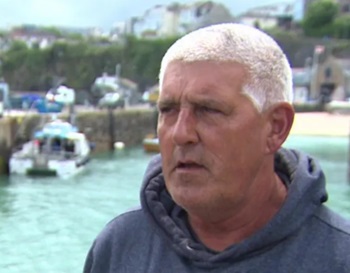 A Cornish fisherman who voted for Brexit said the fleet had been “sold down the river” because foreign boats were still fishing near the coast. Cornish MP Steve Double raised the issue in parliament this week saying the under-10m (33ft) fleet was “sadly in decline” and had been losing more than 100 vessels each year. Martin Gilbert, who fishes mainly for shellfish out of Newquay harbour and voted for Brexit but said the current deal had “sold us down the river”. “The French, the Belgians and the Spanish have still got the majority of the quota,” he said. “We have to go past the French to fish in our own waters and it’s not right.” more, >>CLICK TO READ<< 08:42
A Cornish fisherman who voted for Brexit said the fleet had been “sold down the river” because foreign boats were still fishing near the coast. Cornish MP Steve Double raised the issue in parliament this week saying the under-10m (33ft) fleet was “sadly in decline” and had been losing more than 100 vessels each year. Martin Gilbert, who fishes mainly for shellfish out of Newquay harbour and voted for Brexit but said the current deal had “sold us down the river”. “The French, the Belgians and the Spanish have still got the majority of the quota,” he said. “We have to go past the French to fish in our own waters and it’s not right.” more, >>CLICK TO READ<< 08:42
Scots fishers feeling chipper over more haddock
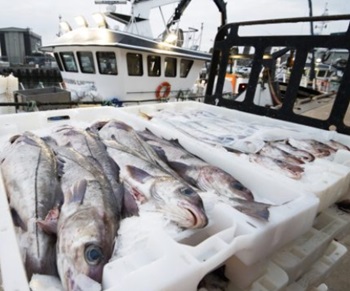 Scots fishers have access to more haddock, the mainstay of fish suppers north of the border, following an international deal on quotas. It remains to be seen whether it will mean cheaper fish and chips. But more haddock is undoubtedly a boost for the supply chain, including fish friers. The agreement between the UK and Faroe was today hailed as the “final piece of the jigsaw” for the Scottish catch sector in 2024. Britain secured a total of more than 2,200 tonnes of extra fish quota in the bilateral talks. Scottish fishing vessels, including many based in the north-east, now have greater access to several key stocks. According to the UK Government, it is another example of what can be achieved from “post-Brexit freedoms”. Photos, more, >>click to read<< 16:27
Scots fishers have access to more haddock, the mainstay of fish suppers north of the border, following an international deal on quotas. It remains to be seen whether it will mean cheaper fish and chips. But more haddock is undoubtedly a boost for the supply chain, including fish friers. The agreement between the UK and Faroe was today hailed as the “final piece of the jigsaw” for the Scottish catch sector in 2024. Britain secured a total of more than 2,200 tonnes of extra fish quota in the bilateral talks. Scottish fishing vessels, including many based in the north-east, now have greater access to several key stocks. According to the UK Government, it is another example of what can be achieved from “post-Brexit freedoms”. Photos, more, >>click to read<< 16:27
UK industry support fund reopens for 2024
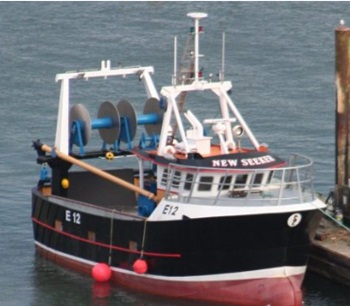 Around £6 million in match funding is being made available to projects developing the catching, processing and aquaculture sectors, and those enhancing the marine environment, under the latest round of the Fisheries and Seafood Scheme (FaSS). Administered by the Marine Management Organisation (MMO) on behalf of Defra, applicants can now apply for this year’s funding which will support the fishing industry in a variety of areas, including health and safety, processing, partnerships, research and diversification. Funding will build on the £27 million already committed to more than 1300 projects. more, >>click to read<< 10:03
Around £6 million in match funding is being made available to projects developing the catching, processing and aquaculture sectors, and those enhancing the marine environment, under the latest round of the Fisheries and Seafood Scheme (FaSS). Administered by the Marine Management Organisation (MMO) on behalf of Defra, applicants can now apply for this year’s funding which will support the fishing industry in a variety of areas, including health and safety, processing, partnerships, research and diversification. Funding will build on the £27 million already committed to more than 1300 projects. more, >>click to read<< 10:03
Uncharted Waters: The Hunkin Family’s Fight for Their Ancestral Fishing Trade
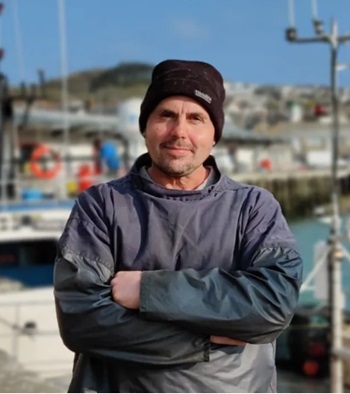 For 14 generations, the Hunkin family has braved the unpredictable waters off the Cornish coast, weaving their lives into the rhythm of the sea. But now, a sudden shift in government regulations has forced this storied fishing family to abandon their ancestral trade. As of January 1, 2024, the pollack catch quota has been set to zero, save for a minuscule by-catch allowance, leaving the Hunkins – and many like them – grappling with an uncertain future. Daniel Hunkin, the latest in a long line of seafarers, laments the lack of notice and communication from the government. “We relied on pollack for more than half our annual income,” he says, “We’ve had to sell our boats and face an uncertain future.” more, >>click to read<< 07:07
For 14 generations, the Hunkin family has braved the unpredictable waters off the Cornish coast, weaving their lives into the rhythm of the sea. But now, a sudden shift in government regulations has forced this storied fishing family to abandon their ancestral trade. As of January 1, 2024, the pollack catch quota has been set to zero, save for a minuscule by-catch allowance, leaving the Hunkins – and many like them – grappling with an uncertain future. Daniel Hunkin, the latest in a long line of seafarers, laments the lack of notice and communication from the government. “We relied on pollack for more than half our annual income,” he says, “We’ve had to sell our boats and face an uncertain future.” more, >>click to read<< 07:07
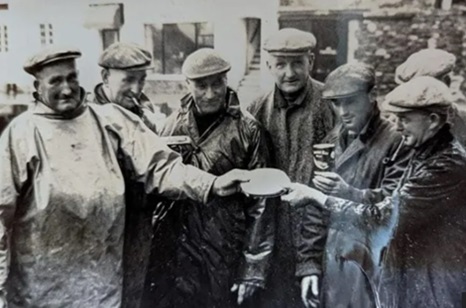
Cornwall family put boat up for sale after 300 years at sea
A family that has been fishing off the coast of Cornwall for 14 generations said they have quit the industry due to new government regulations. The Hunkin family, from Mevagissey, have been fishing for about 300 years, since the reign of King George I. However, on 1 January 2024 the pollack catch quota was set to zero, apart from a small by-catch allowance, in order to preserve stocks. Daniel Hunkin said he and others had since put their boats up for sale. More, He said the crew relied on pollack for more than half their annual income and he was worried for the industry as a whole. more, >>click to read<< 08:06
‘Still 1,700 EU vessels plundering British seas’ UK fishermen reveal TRUTH of ‘sell-out’ deal capitulating to France
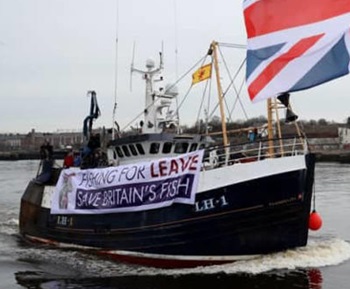 The fishing community has been left fuming four years on from the UK’s departure from the EU after accusing the UK of signing up to a “sell-out” Brexit deal in capitulation to France. Former Brexit Party MEP June Mummery, who is also the managing director of the Lowestoft-based fish market auctioneers BFP Eastern, said: “We haven’t taken back control of our waters and the resource. “Fishing, coastal communities were stabbed in the back. The UK fishing is on its knees. ”There are still 1,700 EU vessels plundering, unmonitored, unregulated. “Eight of which are super trawlers. DEFRA wants the small fishermen gone to make way for wind mills.” more, >>click to read<< 07:27
The fishing community has been left fuming four years on from the UK’s departure from the EU after accusing the UK of signing up to a “sell-out” Brexit deal in capitulation to France. Former Brexit Party MEP June Mummery, who is also the managing director of the Lowestoft-based fish market auctioneers BFP Eastern, said: “We haven’t taken back control of our waters and the resource. “Fishing, coastal communities were stabbed in the back. The UK fishing is on its knees. ”There are still 1,700 EU vessels plundering, unmonitored, unregulated. “Eight of which are super trawlers. DEFRA wants the small fishermen gone to make way for wind mills.” more, >>click to read<< 07:27
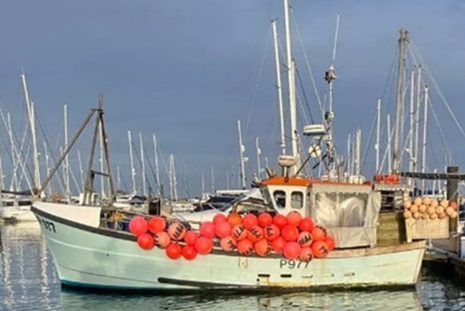
Devon man forced to sell boat as fish ban sparks turmoil
Devon fishermen face an uncertain start to 2024 as tough new rules imposing limitations on what they can catch were imposed by the UK Government in conjunction with the EU. The pollack quota is now effectively at zero and can only be caught as bycatch – when they’re caught in nets whilst fishing for a different species. Brixham fisherman Rob Adams is having to put his beloved 10-metre boat, ‘Jodie B’, up for sale rendering him and his crew ‘unemployed’. Rob, aged 55, has been fishing since he was 16-years old but said ‘there’s no income from Jodie B now’ due to the pollack fishing restrictions. photos, more, >>click to read<< 07:52
‘Ludicrous’ fishing ban hits Plymouth dad as he fears for future
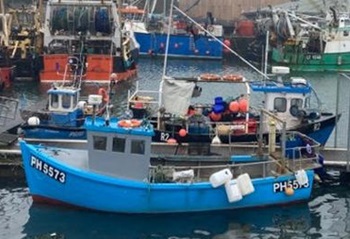 A Plymouth fisherman with a five-month-old daughter at home is one of many being hit hard by a tough new quota for pollack, which was agreed by the UK Government and the EU late last year. James Strevens said 70 per cent of his income has been ‘taken away’ since the Department for Environment, Food & Rural Affairs (Defra) introduced changes which saw the pollack catch quota effectively at zero from the start of 2024 to preserve stocks, leaving James and many other fishermen “stressed” and feeling “pushed backwards”. The stock of pollack in the Channel is shared between the EU and UK. In 2022, the quota for the UK was 1,821 tonnes, and in 2023 it was 1,506 tonnes, the BBC reported last month. While Defra argue it was better to put in place restrictions rather than see fish stocks exhausted, Plymouth’s inshore fleet says it is in a “dire situation”. photos, more, >>click to read<< 07:18
A Plymouth fisherman with a five-month-old daughter at home is one of many being hit hard by a tough new quota for pollack, which was agreed by the UK Government and the EU late last year. James Strevens said 70 per cent of his income has been ‘taken away’ since the Department for Environment, Food & Rural Affairs (Defra) introduced changes which saw the pollack catch quota effectively at zero from the start of 2024 to preserve stocks, leaving James and many other fishermen “stressed” and feeling “pushed backwards”. The stock of pollack in the Channel is shared between the EU and UK. In 2022, the quota for the UK was 1,821 tonnes, and in 2023 it was 1,506 tonnes, the BBC reported last month. While Defra argue it was better to put in place restrictions rather than see fish stocks exhausted, Plymouth’s inshore fleet says it is in a “dire situation”. photos, more, >>click to read<< 07:18
Pollack fishing: Setting quota to zero ‘damaging’ to South-West industry
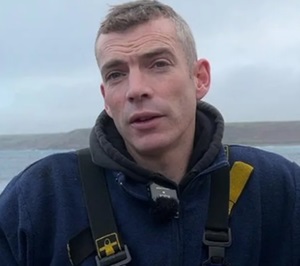 A decision to set the pollack catch quota to zero will be “damaging” to the fishing industry, those working in South-West England have said. The Department for Environment, Food & Rural Affairs (Defra) said the quota had been reduced to preserve stocks. It said it recognised the “impact” the decision “may have” and was working to “explore potential mitigations”. Ben George, who fishes from Sennen Cove in Cornwall, said he never once “dreamed it could be a total ban”. “It’s particularly damaging for the small inshore fisherman, because they can’t diversify easily now to anything else,” he said. more, >>click to read<< 06:19
A decision to set the pollack catch quota to zero will be “damaging” to the fishing industry, those working in South-West England have said. The Department for Environment, Food & Rural Affairs (Defra) said the quota had been reduced to preserve stocks. It said it recognised the “impact” the decision “may have” and was working to “explore potential mitigations”. Ben George, who fishes from Sennen Cove in Cornwall, said he never once “dreamed it could be a total ban”. “It’s particularly damaging for the small inshore fisherman, because they can’t diversify easily now to anything else,” he said. more, >>click to read<< 06:19
UK secures £970million fishing stock with EU in deal ‘better than if we were in the bloc’
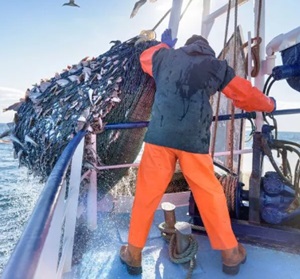 A new set of agreements between Norway and the UK opens up an estimated €1billion in fishing opportunities for the EU country, the European Commission has said. The UK meanwhile has secured an estimated £970million in the deal. It comes after years of haggling over post-Brexit fishing arrangements which have left hundreds of UK fishermen “betrayed” – but the Government says the new deal for 2024 provides more for UK fishermen than it would have done were we still in the bloc. Fisheries Minister Mark Spencer said: “These significant deals give UK fishermen access to important fish stocks worth £970million and take advantage of our position outside the EU to independently negotiate in our fishing fleets best interest. more, >>click to read<< 08:32
A new set of agreements between Norway and the UK opens up an estimated €1billion in fishing opportunities for the EU country, the European Commission has said. The UK meanwhile has secured an estimated £970million in the deal. It comes after years of haggling over post-Brexit fishing arrangements which have left hundreds of UK fishermen “betrayed” – but the Government says the new deal for 2024 provides more for UK fishermen than it would have done were we still in the bloc. Fisheries Minister Mark Spencer said: “These significant deals give UK fishermen access to important fish stocks worth £970million and take advantage of our position outside the EU to independently negotiate in our fishing fleets best interest. more, >>click to read<< 08:32
New tech designed with Cornish fishermen to transform bycatch monitoring
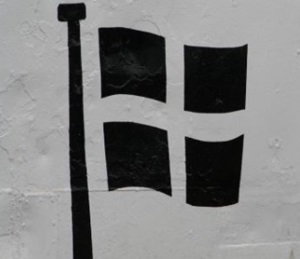 An innovative new tool being developed with fishermen in Cornwall aims to radically transform how by-catch is documented on board fishing vessels and, ultimately, prevent it happening. In a UK-first, Insight360 combines voice recognition and video information to deliver real-time insight and create a 360-degree view of what’s happening at sea during a by-catch event, that continuously improves over time. Refined with fishermen, the technology removes the need to manually review and add notes to footage, offering instead a way for skippers and crews to train a monitoring system to automatically recognise and record bycatch events as they happen. >>click to read<< 08:19
An innovative new tool being developed with fishermen in Cornwall aims to radically transform how by-catch is documented on board fishing vessels and, ultimately, prevent it happening. In a UK-first, Insight360 combines voice recognition and video information to deliver real-time insight and create a 360-degree view of what’s happening at sea during a by-catch event, that continuously improves over time. Refined with fishermen, the technology removes the need to manually review and add notes to footage, offering instead a way for skippers and crews to train a monitoring system to automatically recognise and record bycatch events as they happen. >>click to read<< 08:19
Pyridine ‘unlikely’ to be cause of mass shellfish die-off on Teesside, new test finds
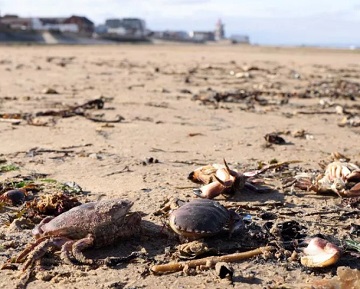 The latest investigation into the cause of mass creature die off along the North East coast has found an industrial chemical is unlikely to be the cause. The Government has today issued the findings of an investigation by the independent experts at the Centre for Environment, Fisheries and Aquaculture Science, who used a new method to test for the chemical, pyridine, in animal tissue and sediments. The original incident between October and December 2021 saw crustaceans washed ashore with dying creatures “twitching” and displaying lethargic behaviour right along the coast from Hartlepool down to Whitby. >>click to read<< 11:38
The latest investigation into the cause of mass creature die off along the North East coast has found an industrial chemical is unlikely to be the cause. The Government has today issued the findings of an investigation by the independent experts at the Centre for Environment, Fisheries and Aquaculture Science, who used a new method to test for the chemical, pyridine, in animal tissue and sediments. The original incident between October and December 2021 saw crustaceans washed ashore with dying creatures “twitching” and displaying lethargic behaviour right along the coast from Hartlepool down to Whitby. >>click to read<< 11:38
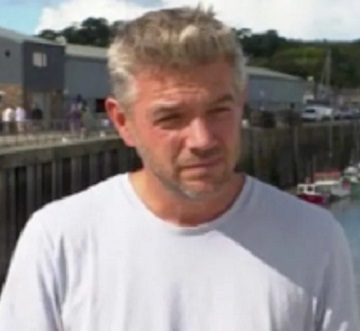
Consultation amid low crab and lobster numbers
Members of the fishing industry are being asked for their views to inform a plan to ensure crab and lobster are caught sustainably. It comes amid concerns crab and lobster populations could be “vulnerable” to over-fishing. The Department for Environment, Food & Rural Affairs (Defra) is running a public consultation on the issue. The consultation is part of the post-Brexit management of sustainable fishing stocks. Padstow inshore fisherman Johnny Murt said he was concerned about the impact of industrial fishing. He said he welcomed more regulation around lobster and crab fishing in Cornwall. Mr. Murt said inshore fishermen in Padstow had been forced to increase their gear in recent years to catch “an increasingly lower number of lobster and crab”. >>click to read<< 14:50
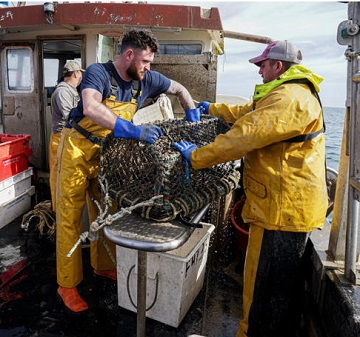
EU and UK fishermen to install cameras and sensors on boats for post-Brexit quotas
On Monday, ministers are expected to unveil a package of measures that will form part of the post-Brexit regime for fishing in British waters, following 18 months of talks with industry bodies. It will include proposals for both EU and UK vessels to be required to place monitoring equipment on their boats to enable officials to conduct audits of their catches. Currently, cameras are installed on a handful of boats involved in pilot and scientific schemes in British waters. Officials have also been examining sensors that detect or measure fishing operations such as the movement of nets. The Department for Environment, Food & Rural Affairs wants to make the technology mandatory for vessels involved in catching certain fish, after an initial period of developing the scheme with volunteer boats. >click to read< 17:12
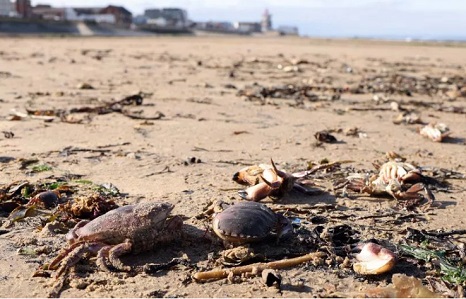
Fishing group’s list of over 100 reports of incidents and concerns since 2021 marine die-offs
Since October 2021, fishermen have been battling for the region’s ecosystem after swathes of dead crabs, lobsters, and shellfish washed up on beaches. Environmentalists and fishermen fought for answers – with the Department for Environment Food and Rural Affairs eventually launching a probe.While the initial Defra report said an algal bloom was the most likely cause, further investigations found that a “novel pathogen” was most likely to blame. Independent marine and university experts as well as the fishermen believed dredging on the Tees unearthed historical toxins leading to the mass die off – but this has also been ruled out by the authorities. Incident reports listed by the NEFC, and what a sad list it is, >click to read< 21:34
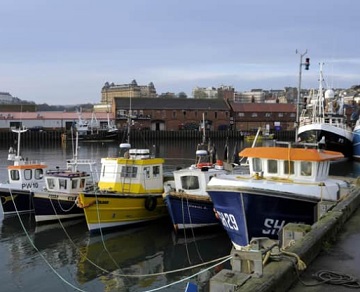
‘The job’s f****d’ – Fishers slam local MP for comments
The North East Fishing Collective (NEFC), which represents fishers from Hartlepool to Whitby, was established to support fishers along that stretch of coast after unexplained mass deaths of shellfish in the area in several events from September 2021 onwards left them without catches. Hartlepool MP, Jill Mortimer, last week shared a photo of her in a meeting with Environment Minister Mark Spencer in Parliament where she described how “prawners have experienced a temporary but significant reduction in their catches due to prawns burrowing into sands.” “The prawns and catches returned,” she wrote, however the NEFC has disputed this in no uncertain terms. >click to read< 14:57
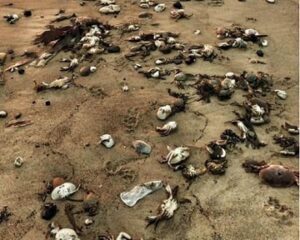
Scientists who investigated crab and lobster die off ‘surprised’ politicians have ‘questioned their integrity’
The 13-person panel of experts conducted a review of all the evidence gathered during a government-run investigation into the deaths of the crustaceans, which began washing ashore between Hartlepool and Whitby in October 2021. The panel said it was “unable to identify a clear and convincing single cause” but the “most likely” explanation is an unknown disease or parasite killed the crustaceans, after it was convened by the Department for Environment, Food and Rural Affairs’s (Defra) Chief Scientific Advisor Professor Gideon Henderson. The findings have been disputed in recent weeks by local fishermen and a number of Labour MPs, with Geraint Davies claiming it was “farcical” to suggest a “phantom pathogen” caused the deaths. >click to read< 09:05
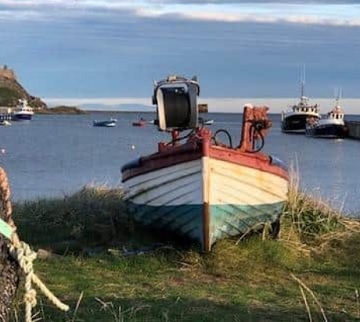
Holy Island fishing ban set to be dropped after outcry
The government had been exploring designating it a Highly Protected Marine Area (HPMA), which would have seen fishing halted. But fears were voiced it would devastate the local economy. The Department for Environment, Food and Rural Affairs (Defra) said it would designate its first English HPMA later this year. Berwick MP Anne-Marie Trevelyan tweeted a copy of a letter she received from Environment Secretary Therese Coffey stating her department would not designate Lindisfarne (Holy Island) an HPMA. Local fishermen warned they were worried about the future and in September local councillors said pressing ahead with the proposal would turn the area into a “museum”. >click to read< 08:37
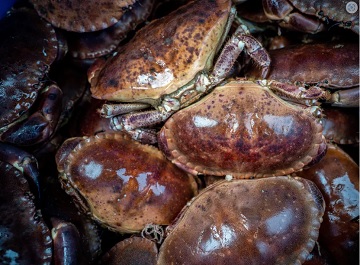
Labour slams government over ‘discredited theory’ for mysterious big crustacean die-off
Shadow environment secretary Jim McMahon has written to his opposite number in government, Therese Coffey, to criticise her department’s theory that algal bloom caused the deaths. Thousands of dead and dying crustaceans washed ashore along parts of the north-east coast of England between October and December 2021. On 17 January, a panel of independent experts convened by the Department for Environment Food and Rural Affairs (Defra) chief scientific officer Gideon Henderson concluded: “A novel pathogen is considered the most likely cause of mortality. However, the panel was “unable to identify a clear and convincing single cause for the unusual crustacean mortality”. >click to read< 12:10
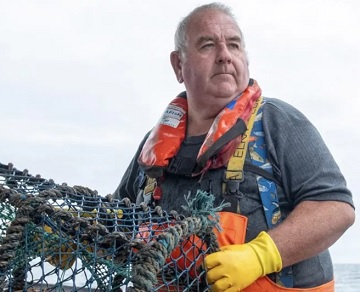
From the heart of a Hartlepool fisher – to EFRA
Dear EFRA COMMITTEE, MMO, local MPs, councillors and interested parties. Please log the ecosystem rock pool make up life change, with the many other die-offs that you haven’t given me feedback on, since the freeport dredge started in 1 September 2021, and the 145.000 tonnes of capital dredge from the toxic Seaton Channel, that you have allowed to be removed, irrespective of its chemical makeup, and dumped six miles out, in the last two weeks. I eagerly await the MMO answers, please copy the EFRA Committee in, and the feedback [as to] why these creatures are all that’s left in the ponds. >click to read< 07:46
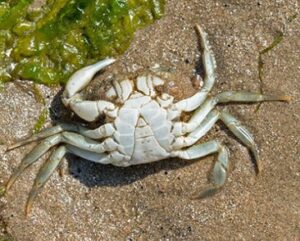
Defra accused of ‘remarkably poor scientific practice’ over crabs
University academics have criticised a government-commissioned report into mass crab die-offs on England’s north-east coast, with one accusing it of “remarkably poor scientific practice”, and they pledged to continue their research into the matter. The academics, from the universities of Newcastle, Durham and York, believe pollution caused crab and lobster deaths rather than a new pathogen, which a report from the environment department found to be the most likely cause of the deaths despite no direct evidence for such a disease. The report, and its criticisms, follow controversy over an unusually large number of dead or dying crabs and lobsters found along the north-east coast of England in the autumn and winter of 202. >click to read< 16:11






